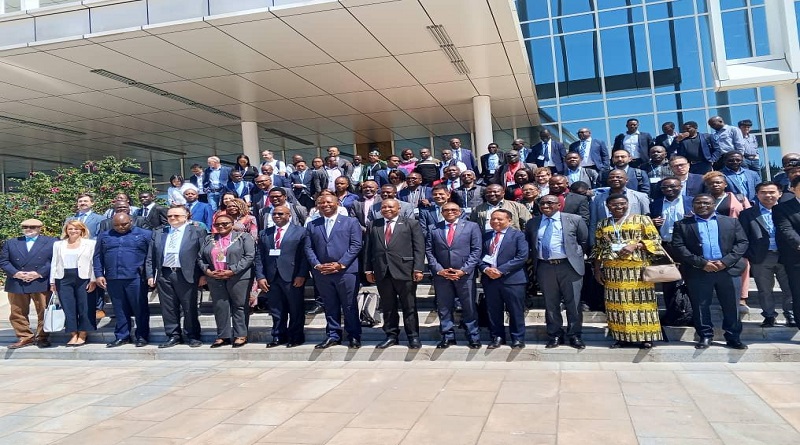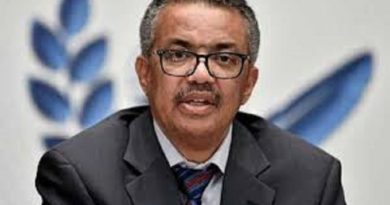NAP Expo 2025 closes in Zambia with call to scale up adaptation finance, resilience
The largest annual adaptation event concluded on Friday 15th August 2025 in Lusaka, Zambia, with an urgent call for scaled up investment in adaptation finance and resilience, to save lives, lift living standards and boost economic growth.
NAP Expo 2025 focused on strengthening countries’ capacity to advance National Adaptation Plans (NAPs) ahead of COP30 in Brazil, meet the 2025 submission target, and closing the financing gaps that threaten effective adaptation.
The Expo also launched updated adaptation guidelines, and helped countries to make use of new AI tools for adaptation planning and implementation, in many countries for the first time, among many other key developments.
“Adaptation isn’t a bill we can skip. If we don’t fund it, the poorest pay in lost harvests, poorer health, and – at worst – with their lives,” said Youssef Nassef, Director of Adaptation at UN Climate Change.
“Around USD 300 billion is needed annually for climate adaptation by 2030. Governments will spend this amount and much more, whether they like it or not, in rebuilding infrastructure destroyed by climate disasters, and importing food due to ruined crops,” said Nassef.
“Much smarter and cheaper is investing in resilience up-front, because this not only saves lives and money, it delivers massive dividends across every sector and every community, transforming lives and economies for the better.”
Zambia’s Minister of Green Economy and Environment, Mike Elton Mposha, said: “We must transform NAPs into investable and bankable plans attractive for investment, including by the private sector. It is also imperative to enhance horizontal and vertical coordination to ensure effective participation of various stakeholders – including women, children and youth, persons with disabilities, local communities and the private sector – in the design and execution of NAPs.”
“Climate change is a matter of life and death for our people. The 2023-2024 drought reduced crop yields by about half, and similarly reduced electricity generation by more than half. This requires a multi-pronged approach across multiple sectors and scales, centred around the critical role of water,” added Douty Chibamba, Permanent Secretary, Ministry of Green Economy and Environment of Zambia.
The Expo, attended by around 400 participants from 80 countries, launched updated technical guidelines, welcomed by least developed countries and others as a strong basis to help nations in designing and implementing their NAPs by 2025, in line with the latest science and the Global Goal on Adaptation (GGA).
Adaptation plans are vital to ensuring that vulnerable communities have access to the funding and support they need to build resilience to worsening droughts, floods and other climate disasters.
Key outputs from the Expo include:
Over six technical sessions focused on promoting mobilization and access to financing for NAPs: (i) maximizing access to existing sources and modalities under the UNFCCC Financial Mechanism; (ii) exploring new sources and modalities of adaptation finance and how countries can mobilize or engage.
Five sessions aiming to accelerate the uptake and use of frontier and digital technologies in the NAP process, including big data, Artificial Intelligence (AI) and Machine Learning.
For many participants, it was the first time using AI in supporting the formulation and implementation of NAPs, and the guided sessions provided an introduction to several powerful resources.
The AI session was so successful that participants requested an additional one, which was offered on the next day and focused on co-producing a sample open NAP to showcase concepts relevant to adaptation assessment, planning and implementation.
Various sessions strengthened inclusive stakeholder engagement in the NAP process by promoting the incorporation of diverse values and worldviews of Indigenous Peoples and the experiences of local communities, as well as private sector involvement, with a strong focus on vulnerable communities, gender-responsiveness and youth participation.
Fumukazi Zilanie Kamgundanga Gondwe, traditional leader of the Phoka people, Rumphi, Malawi, said: “What we refer to as innovation is often rooted in long-standing Indigenous practices such as seed sovereignty, sacred forest protection, and cultural rituals for ecological balance.”
Ana Toni, CEO of the upcoming COP30 climate conference in Brazil, called on the global community to “transcend outdated mindsets whilst preserving shared values and innovating towards a new planetary renaissance, where humankind regenerates its relationship with itself and with the nature it belongs to.”
“COP30 will serve as a turning point for adaptation, and NAPs must lead the way, building capacity and securing funding to strengthen our efforts. In Belém, adaptation must be elevated to the same level of importance as mitigation on the global agenda, especially as the impacts of climate change have already infiltrated our homes. Together, we have the power to implement meaningful change and safeguard our communities for a more resilient and sustainable future,” Toni added.
Attended by government officials, technical experts, Indigenous leaders, private sector representatives, and development partners, the Expo was marked by a focus on implementation – how to help countries meet the 2025 NAP submission target while actively working to close the financing gap that threatens adaptation progress.
Countries also showcased practical solutions to the Global Goal on Adaptation targets:
Water security: nature-based solutions for urban rainwater harvesting, climate-smart agricultural practices, and restoration of rivers and streams.
Food security: climate-smart agriculture techniques improving soil health and yields without expanding land use.
Secure Livelihoods: diversified income and strengthened resilience through sustainable resource management.
Resilient infrastructure: coastal protection projects rooted in nature-based solutions.
Youssef Nassef expressed deep gratitude to the Government and people of Zambia for their gracious hospitality in hosting this important global event, noting how the Zambian spirit of solidarity, of hope, of collectivism and harmony helped underpin a successful Expo.
As the Expo closed, participants pointed to next month’s Climate Week in Addis Ababa, Ethiopia (1-6 September) convened by UN Climate Change, as another key moment to advance adaptation and resilience, including financing needs, along with other key issues.
By bringing together negotiators with implementers in government and the real economy, along with key financiers including development banks, Climate Week will help lay a foundation for progress on finance, adaptation, mitigation and a Just Transition, in Belém and beyond.




